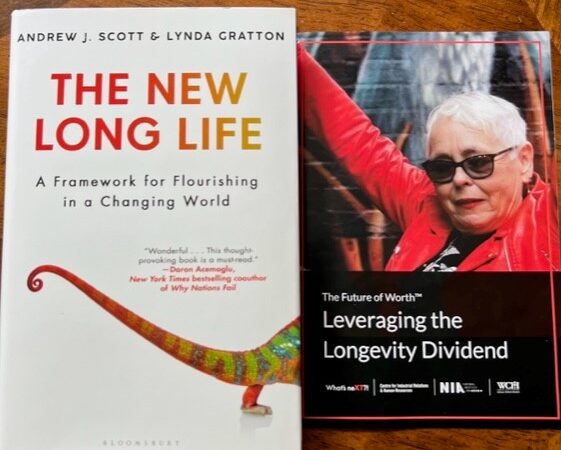We are in the midst of a longevity revolution where people live longer and healthier lives. Economists in the US and UK have written about the longevity dividend or the benefits we could realize with this significant societal shift. Canadian institutions such as governments, corporations, and academics are starting to take note.
The Longevity Dividend
Last week, I attended a conference at the University of Toronto entitled the “Future of Worth™ Leveraging the Longevity Dividend” sponsored by What’s NeXT?!, the Centre for Industrial Relations and Human Resources, the National Institute on Ageing, and the Women’s Age Lab. Apparently, the first of its kind in Canada, the focus was on how longer lifespans could be more productive, dignified, and purposeful. There was a general acknowledgement of the need for a reset in Canadian society with a more focused and collaborative effort among social entrepreneurs, employers, governments, policymakers and academics to address the opportunities to leverage the benefits of this significant demographic shift.
The Economics of Longevity
Listening to the speakers and participating in discussions made it apparent that the longevity dividend discussion was multi-faceted and only beginning. One panel of speakers addressed the economics of longevity. It provided Canadian and global perspectives on labour participation rates, talent shortages, the future of work, financing retirement, and benefits and pension reforms. An excellent reference is “The 100 Year Life[1]” by Lynda Gratton and Andrew Scott from the London Business School. As an economist, Scott studies the economics of longevity. He argues that if people lead healthier and more productive lives, they will work longer, consume more and help contribute to the economy.
A 100-Year Life
Another panel discussed the new map of life and their ongoing research and insights on what a 100-year life might look like. While there were some interesting insights, I found it intriguing that the organizers did not include people in their 80s or 90s actively striving to be healthy centenarians. After all, centenarians are one of the fastest-growing population cohorts in Canada, so why not ask them?
A third panel discussed age-inclusive work environments and how to use the skills and wisdom of older workers to address talent shortages. In the discussion groups, ageism was a prominent issue, especially for women in the workplace.
Planning Beyond Learn, Earn, & Retire
From an estate planning and elder management perspective, the discussions highlighted even more factors contributing to a complex planning world. We can no longer sum up life as “learn, earn and retire.” There are far more ages and stages than we might have anticipated. Flexibility will be crucial as people try out different work models in later life. The COVID pandemic gave us a glimpse into hybrid working – expect more of that, not less with an ageing population.
And if I plan to retire at 60 years from one job, yet live to 100 years, what will I do for the next 40 years? How do I live an active, productive, and purposeful life? Taking individual accountability for planning your next 40 years is critical, and advisors must rethink how to accommodate these new paradigms.
We are only beginning to think about leveraging the benefits of an ageing population. The longevity dividend is real and will impact each of us, our families, and society. One wonders why we didn’t act sooner – the demographic predictions were obvious.
[1] Lynda Gratton and Andrew Scott, The 100-Year Life (New York, NY: Bloomsbury Business, 2016)


0 Comments